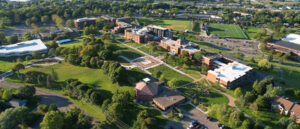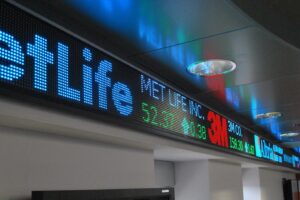Economics

Why an Economics Degree From Le Moyne?
Economics influences our consumer behavior – how much to spend on groceries or how long it will take to save for a vacation. It’s also key to understanding the world on a broader scale – business analytics, public policies and why people in some parts of the world have greater access to education, housing, employment and healthcare.
Pursuing an economics degree at Le Moyne, you’ll learn theories and research and apply them to solve real-world challenges. You’ll consider the economics of goods and services and the economic dimensions of poverty. You’ll look at the global food supply, climate change, and the conservation of natural resources. Your degree will sharpen your critical thinking skills, and you’ll graduate with the knowledge and tools to address society’s most pressing issues, fully prepared to change the world.
Quantitative Skills to Conquer Real-World Challenges
The Le Moyne economics program is based on a liberal arts core, inspiring careers in education, finance, marketing, management, international affairs and the nonprofit sector.
Economics Undergraduate Degrees
Graduating from Le Moyne with an undergraduate degree means you’ll be able to explain and apply economic concepts and theories, analyze issues and policies, identify relevant economic information, interpret that information, use quantitative methods when looking at data and communicate confidently.
Economics Minor
An economics minor adds value to any major and broadens career possibilities. The minor requires 15 credit hours of economics courses, with at least half of these credits taken at Le Moyne College.
Economic Courses
In addition to courses in microeconomics and macroeconomics, you can select courses on topics of interest, such as the economics of sports, the economics of crime and punishment and strategic competition in market economies.
The Le Moyne Economics faculty research includes areas of housing economics, the economic modeling of federal budget processes, urban and regional economics, applied macroeconomics, environmental economics and why so many people gamble with their careers and make large financial investments in exceedingly risky, winner-take-all occupations.
Career Opportunities with an Economics Degree & Median Salaries
$87,965 Auditor
$113,940 Economist
$139,790 Financial Controller
$68,230 Market Researcher
$82,847 Risk Analyst

The Economics Program at Le Moyne prepared me for my post-collegiate career because it gave me the skills to analyze and interpret real-world problems. They don't just teach you concepts and theories; they help develop your ability to think and analyze in real-world situations, preparing you for what to expect in your professional career.”

Questions? Get in touch.






